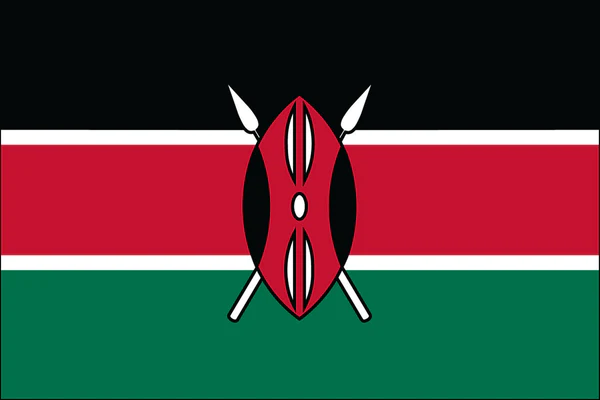Celebrating their national holiday ‘Jamhuri Day’ on 12th December each year, Jersey’s Kenyan community is estimated to now comprise hundreds of individuals working in various Island industries. In this blog, a member of the ‘Kenyans in Jersey’ community group, Maggie Turner, who moved to Jersey from Kenya over 20 years ago, reflects on the importance of their Independence Day and how it is celebrated around the world.
Jamhuri Day is one of Kenya’s most important national holidays. Yesterday marked 60 years of independence for the country. It is a formal commemoration of the date when Kenya obtained its independence from Great Britain in 1963. It also marks the date in 1964 of the country’s admittance into the Commonwealth as a republic. The celebration takes its name from the Swahili word jamhuri which means “republic”.
Kenya had been under British colonial rule since the late 19th century. Following significant Mau Mau uprisings against colonialism and increased African political participation in the early 1960s, Kenya gained its independence on December 12 1963. It became a republic a year later, with Jomo Kenyatta as its president.
How is Jamhuri Day celebrated?
Jamhuri Day represents historical significance to Kenyans worldwide and is a public holiday in Kenya. Virtually every Kenyan celebrates the holiday to one extent or another. Celebrations include feasts, political speeches, trouping of the colours, presentation of awards for orders and medals, parades, family gatherings and dancing. Kenyans participate in these celebrations all over the world.
Jersey Cultures
Jersey has always welcomed people from other cultures to work in many of the Island’s industries over the years, such as farming, fishing, hospitality, healthcare, finance etc. People from France, Italy, Portugal, Madeira, Scotland, Eastern Europe, and Africa, have all been welcomed onto the Island and have contributed to the richness of Jersey’s cultural diversity.
Likewise, people from Kenya are treated no differently. Some of the islanders from Kenya are now long-term residents with established families or are on work permits that help contribute to the Island in many different ways.
Reducing barriers
Jersey has always recognised that social interaction between minority groups can create an environment that encourages a greater understanding of different cultures and their contribution to society. This increased engagement between different groups encourages communication, peaking interest that assists others in understanding how things are done in Jersey. In other words, the culture of the Bailiwick of Jersey, its unique history, Government and Legal system, Parishes, etc.
Kenyans in Jersey
Whilst some Kenyans are long-term established residents, some of whom have been on the Island for over twenty years, have raised families and become fully integrated members of local society, many are currently in Jersey on work permits.
Although no event took place to celebrate Jamhuri Day in Jersey this year, it would be a wonderful opportunity in future to allow Kenyans in Jersey to get together with other nationalities, to network and exchange information. Perhaps more importantly, it would create an opportunity for new islanders to benefit from the knowledge obtained over many years by the more established Kenyans. This would allow for information, such as matters on accessing medical support, local tax issues and a myriad of other subjects to be exchanged.
Opportunity to Celebrate
The Jersey Kenyan Committee understands that Jersey is a multicultural society. The provision of a central venue to celebrate their National Day allows people to come together in a recognisable manner that is safe, at which they can sport colourful national costumes, with dancing, singing and enjoying traditional food.
The International Cultural Centre
The International Cultural Centre was developed from Action 18 of the Council of Ministers’ 100-Day Plan. The aim of the centre is to promote multiculturalism on the Island, support a range of local and international cultural celebrations, offer information and support for Islanders who have cultural backgrounds outside of Jersey, and work directly with communities to understand barriers to integration and how we can overcome them.
 blog.gov.je
blog.gov.je